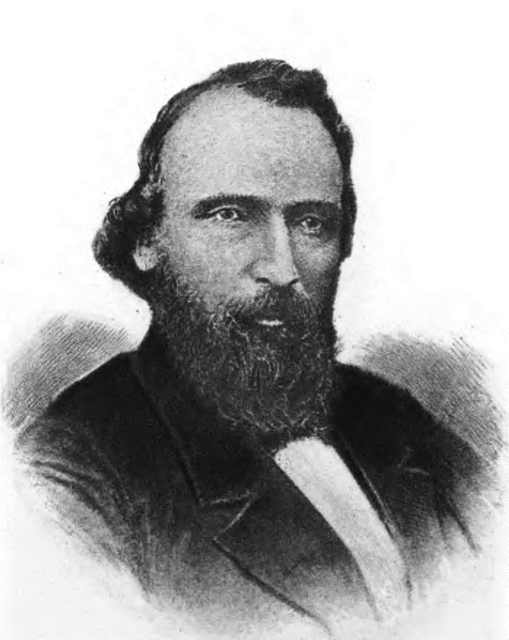Henri-Frédéric Amiel

Henri-Frédéric Amiel

Henri-Frédéric Amiel | |
|---|---|
| Born | 27 September 1821 Geneva, Switzerland |
| Died | 11 May 1881(1881-05-11)(aged 59) Geneva, Switzerland |
| Occupation | Philosopher, poet, critic |
| Nationality | Swiss |
| Period | 19th century |
| Signature |  |
Henri Frédéric Amiel (French: [amjɛl]; 27 September 1821 – 11 May 1881) was a Swiss moral philosopher, poet, and critic.
Henri-Frédéric Amiel | |
|---|---|
| Born | 27 September 1821 Geneva, Switzerland |
| Died | 11 May 1881(1881-05-11)(aged 59) Geneva, Switzerland |
| Occupation | Philosopher, poet, critic |
| Nationality | Swiss |
| Period | 19th century |
| Signature |  |
Biography
After losing his parents at an early age, Amiel travelled widely, became intimate with the intellectual leaders of Europe, and made a special study of German philosophy in Berlin. In 1849 he was appointed professor of aesthetics at the academy of Geneva, and in 1854 became professor of moral philosophy.
These appointments, conferred by the democratic party, deprived him of the support of the aristocratic party, whose patronage dominated all the culture of the city. This isolation inspired the one book by which Amiel is still known, the Journal Intime ("Private Journal"), which, published after his death, obtained a European reputation. It was translated into English by British writer Mary Augusta Ward at the suggestion of academic Mark Pattison.[1]
Although modest in volume of output, Amiel's Journal gained a sympathy that the author had failed to obtain in his life. In addition to the Journal, he produced several volumes of poetry and wrote studies on Erasmus, Madame de Stael and other writers. His extensive correspondence with Égérie, his muse name for Louise Wyder, was preserved and published in 2004.[2]
He died in Geneva on 11 May 1881, at the age of 59.
Works
Berlin au printemps de l’année 1848 (1849)
Du mouvement littéraire dans la Suisse romane et de son avenir (1849)
Grains de mil (1854)
Il penseroso (1858)
La Cloche (1860)
La Part du rêve (1863)
L’Escalade de MDCII (1875)
Charles le Téméraire (1876)
Les Étrangères (1876)
L’Enseignement supérieur à Genève depuis la fondation de l’Académie depuis le 5 juin 1559 (1878)
Jean-Jacques Rousseau jugé par les Genevois d’aujourd’hui (1879)
Jour à jour (1880)
Fragments d’un journal intime (1884, 1887, 1923, 1927)
Philine (1927)
Lettres de jeunesse (1904)
Essais, critiques (1931)